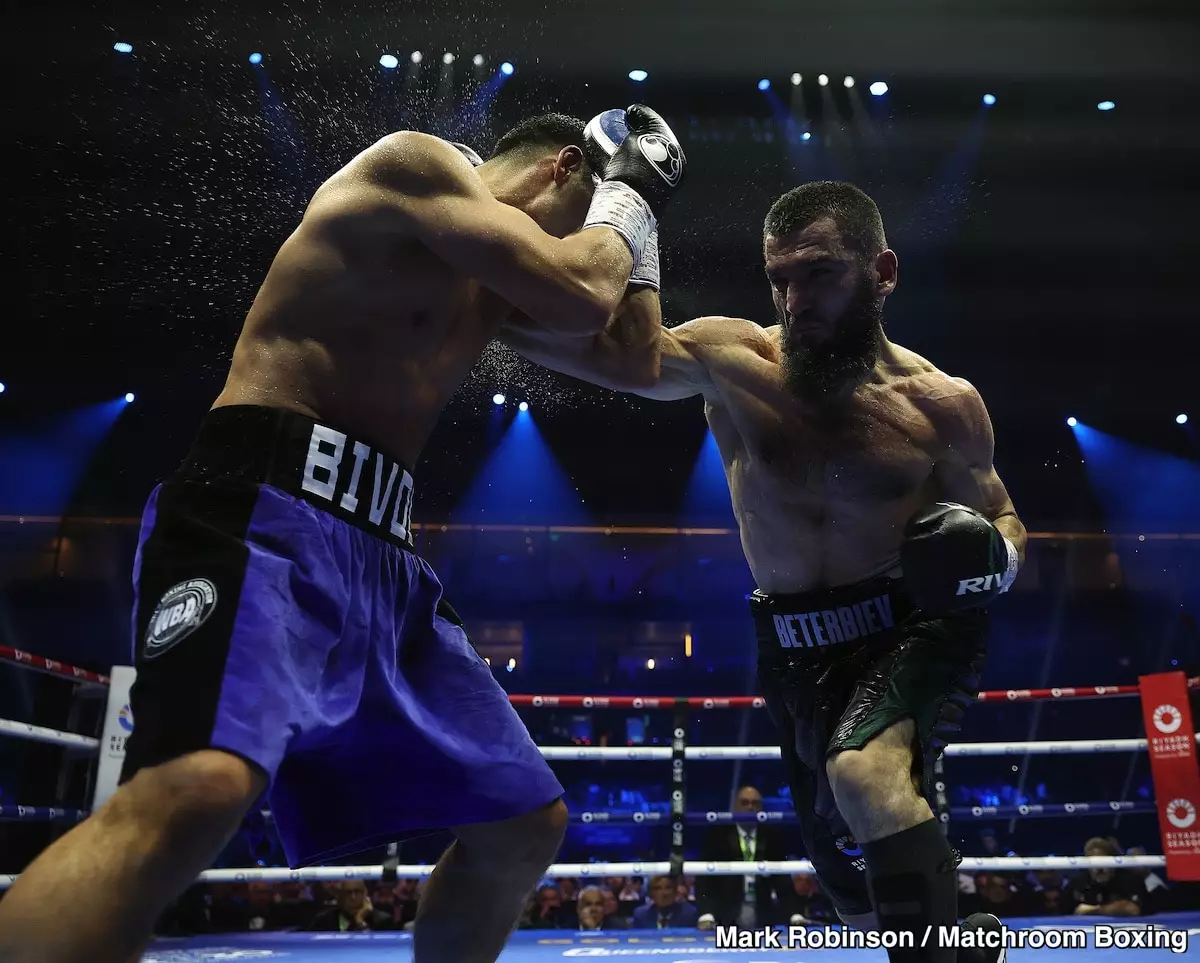In the fiercely competitive world of boxing, the mental game can often be just as crucial as the physical. Dmitry Bivol’s recent candid admissions about feeling the impact of Artur Beterbiev’s punches, even when effectively blocked, have raised eyebrows, particularly among boxing aficionados. Renowned former champion Andre Ward has taken issue with Bivol’s transparency, underscoring that divulging such vulnerabilities may be a blunder—especially with a potential rematch looming on the horizon. In the arena where strategy is paramount, the fundamental principle of maintaining an air of mystery about one’s weaknesses appears to be at play.
The aftermath of Bivol’s recent bout with Beterbiev, where he suffered a narrow, yet hard-fought majority decision defeat, has put both fighters in the spotlight. Bivol’s assertion that he shielded himself from Beterbiev’s blows but still felt their effects could be seen as strategic folly. Ward’s critique hinges not just on the content of Bivol’s statements but on the broader implications of his openness. By openly acknowledging the effect of Beterbiev’s punches, Bivol risks feeding into his opponent’s confidence and psychological advantage—a move that could potentially turn the tide in a rematch.
Bivol’s performance against Beterbiev was marked by a paradox; it was a match determined by tactical footwork and defensive aptitude yet punctuated by visible fatigue and vulnerability in the latter rounds. While many commentators and enthusiasts believed Bivol was effective in executing his game plan—at least in the early rounds—there’s consensus that towards the end, his energy waned alarmingly. Several factors may have contributed to his drop in momentum: the relentless body punches from Beterbiev, the high pace of the fight, and, significantly, the psychological weight of the moment.
As the rounds progressed, Bivol’s ability to maintain his aggressiveness faltered, leading to what seems an uncharacteristic retreat into a more defensive style. This trajectory hints at a larger narrative—one where fighters, despite possessing exemplary skills, can succumb to the pressure of championship bouts. It serves as a stark reminder that physical endurance is often inseparably linked with mental fortitude.
Bivol’s corner acknowledges the duality of his situation: to win decisively, he’ll need to engage more aggressively, yet this carries inherent risks when facing a power puncher like Beterbiev. Trainer Stephen Edwards articulates a crucial aspect of boxing strategy; while aggression can lead to success, it can also leave a fighter exposed. The seventh round highlighted this duality vividly—Bivol appeared to find his rhythm yet overcommitted, resulting in crucial momentum shifts in favor of Beterbiev.
The tension between offense and defense illustrates a chess match where the stakes are determined by split-second decisions. Edwards’ insights underline that while Bivol must harness his aggressive instincts in the rematch, he should tread carefully. Pushing too hard could leave him vulnerable to Beterbiev’s sinister counter strikes, and with the thunderous punching power of the champion, it is a gamble that can quickly turn disastrous.
Looking ahead, the potential rematch between Bivol and Beterbiev will be more than just a showdown of tactics; it will be a contest of psychological resilience and strategic evolution. Bivol’s execution in the next bout will require astute re-evaluation of his previous approach, focusing on striking a balance between assertiveness and caution.
The boxing community will be watching intently to see how Bivol reacts to the feedback from both audiences and his personal reflections from the last match. Will he incorporate the aggressiveness that appeared to unsettle Beterbiev? Or will he innovate a different strategy altogether, embracing a more refined defensive stance? The rematch looms as a high-stakes narrative filled with questions around momentum, confidence, and the cerebral aspects of boxing’s finest art.
As Andre Ward aptly pointed out, vulnerability is a double-edged sword. Bivol’s transparency might have opened avenues for analysis, but it also leaves him exposed in a sport where mental warfare is as essential as the physical confrontation. The journey toward redemption in a sport marked by its unpredictability will depend on Bivol’s ability to adapt, learn, and execute a masterful performance come the rematch.

